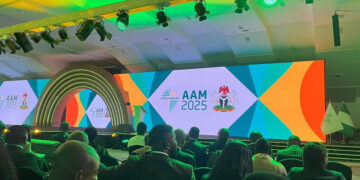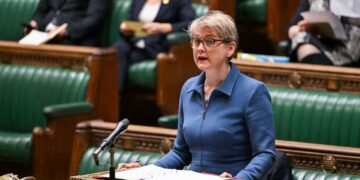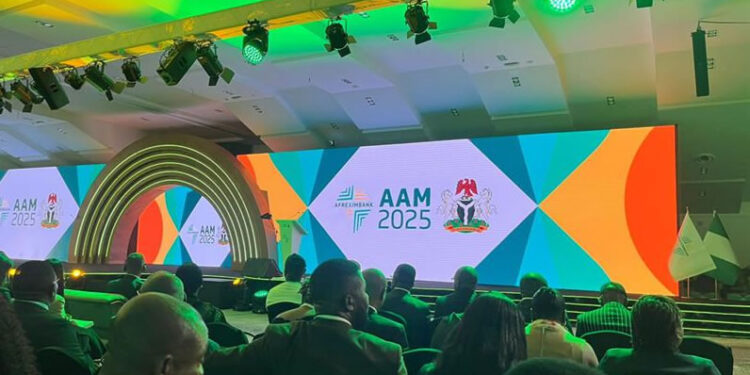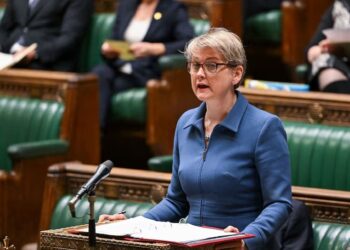By Kosi Eze and John Ikani
The 32nd Annual Meetings of the African Export-Import Bank (Afreximbank) concluded today in Abuja, leaving delegates with a defining message that Africa’s future will be shaped by the capital it retains, the institutions it strengthens, and the deals it negotiates on its own terms.
Over three days, more than 6,000 participants from across the continent and beyond gathered to chart a course for economic transformation. While policy papers and funding announcements dominated the agenda, a deeper question threaded through speeches and panels alike: whether Africa is prepared to trust itself and its entrepreneurs to drive the next wave of growth.
Speaking during a high-level panel, Africa’s richest man, Aliko Dangote, argued that the continent can no longer afford to drain its wealth abroad if it hopes to prosper. “Africa can only be great if we make money within Africa and reinvest that money in Africa,” Dangote said. He criticised the widespread habit of exporting capital, whether legally or illegally, and insisted that only African champions would build the industries needed to create jobs and retain value. “We have everything we need here,” he added. “Other continents need Africa to grow, not the other way around.”
His message found a strong echo in the experience of Tony Elumelu, chairman of Heirs Energy and United Bank for Africa, who recounted how Afreximbank had stepped in with $600 million in financing when he transitioned from banking into the energy sector. Today, Heirs Energy produces over 58,000 barrels of crude oil daily. Elumelu credited the bank’s willingness to back African entrepreneurs with unlocking new sectors. “We need more entrepreneurs doing what we and others are doing to help our people,” he said. “Everyone working together, government, development partners, financial institutions, can catalyse transformation.”
While these personal stories illustrated how local capital can fuel industrial progress, the meetings also highlighted the institution behind many of these gains. Under President Benedict Oramah’s leadership, Afreximbank grew its assets tenfold, from $4 billion to $40 billion. Oramah who prepares to step down earlier pointed to the bank’s record of mobilising over $250 billion in funding across 32 years. “With the backing of the Nigerian government and the support of all stakeholders, we’ve positioned the bank to lead Africa’s socio-economic transformation,” he said.
That confidence was underscored by one of the most significant commitments announced during the week, a $3.8 billion memorandum of understanding between Afreximbank and Gabon to fund national development projects across mining, energy, and transport sectors. The agreement aims to help formalise Gabon’s gold and manganese trade, expand its railway network, and strengthen energy infrastructure. Gabon’s Minister of State for Economy, Finance and Debt, Henri-Claude Oyima, called the partnership a cornerstone of President Brice Oligui Nguema’s strategy to reduce dependence on oil. As the world’s second-largest manganese producer, Gabon is betting that targeted investment and tighter oversight will unlock new export revenues and create jobs.
Yet for all the optimism, the meetings did not shy away from the scale of the challenge ahead. According to Afreximbank’s newly launched African Trade Report, the continent’s share of world exports has declined slightly over the past 15 years, and intra-African trade still accounts for only about 14 percent of formal commerce. Dr. Yemi Kale, the bank’s Group Chief Economist, stressed that closing Africa’s $100 billion annual trade-finance gap will be critical for scaling up manufacturing and regional supply chains.
He presented the 2025 African Trade and Economic Outlook, which showed that Africa’s economies grew by 3.2 percent in 2024, a respectable figure in a turbulent global environment but still below pre-pandemic trends. Inflation ticked up to 20.1 percent, highlighting how fragile these gains remain. Yet amid these pressures, Kale described the African Continental Free Trade Area as a foundation for resilience, particularly as PAPSS, Africa’s cross-border payment system, continues to gain traction.
Nigeria’s role in this evolving landscape stood out prominently. The country more than doubled its intra-African trade to $18.4 billion in 2024, driven by oil exports and, increasingly, refined petroleum shipments from the newly operational Dangote Refinery. Energy economist Emmanuel Nwankwo called the shift “the first signs of Nigeria moving from a raw commodity exporter to a value-added energy hub.”
While African leaders debated how best to consolidate this progress, international voices offered their own candid assessments. Jason Miller, a former adviser to U.S. President Donald Trump, warned African governments to avoid repeating cycles of dependency, particularly in their dealings with foreign powers. “This is Africa’s century, but if these opportunities aren’t seized strategically, Africa risks being taken advantage of again,” he said.
Miller praised Nigeria’s currency reforms as an example of policy courage but challenged African leaders to stabilise business environments, enforce contracts, and invest in sectors such as data centres, AI infrastructure, and clean energy. “Don’t settle for lip service,” he urged. “Demand partnerships.”
As the meetings drew to a close, there was a shared understanding that transformation would require a combination of capital, policy discipline, and political will. Whether in the corridors of Afreximbank or the boardrooms of African conglomerates, the consensus was clear that no external partner would drive Africa’s growth as effectively as Africans themselves.
While Prof. Oramah’s imminent departure marks the end of an era, the commitments signed and the ambitions laid out over the past three days signal that the next chapter is already underway, a chapter defined by an ambition to trade more with each other, invest more in local value chains, and build the financial systems that can weather a volatile world.




































